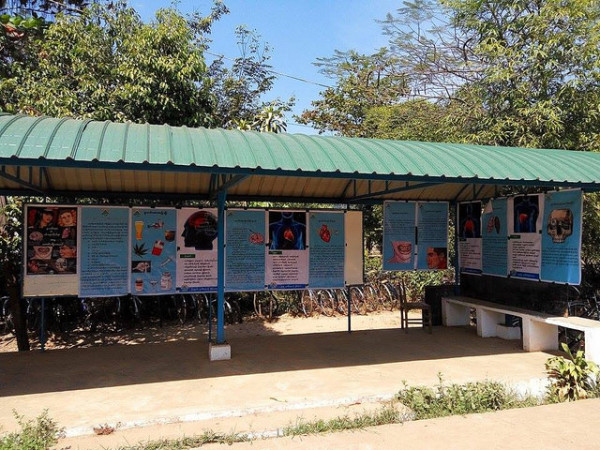Abstinence. That was the extent of the sexual and reproductive health education I received in high school. It wasn’t until I came to Berkeley that I saw what a proper “sex ed” curriculum looked like. My mid-size private Catholic high school in the Bay Area boasted large numbers of AP/Honors classes, well above-average GPAs and SAT scores, and a top-notch athletic facility – everything students needed to “succeed.” Yet somehow, we were stuck with a naïve and backwards sexual health education.
The excuse? The Catholic Church doesn’t permit us to teach “certain things.” By certain things, I knew they meant contraception and family planning methods. So, as most high schoolers seeking information, we went to the two most reliable sources – Wikipedia, and Yahoo! Answers.
Fast-forward seven years – now I am a 4th year getting ready to graduate. I’ve taught close to a hundred health workshops to high school freshman about topics ranging from sexual health to mental health and drugs. Information that every student needs to have – information I wish I had.
Image Source: Tony Rivetti
Sexual and Reproductive health education has always fascinated me – from the perspective of one’s individual health as well as a broader public health lens. The information teens receive about sex generally influences the choices they make, but on a macro level, this relates to the rates of contraceptive prevalence, teen pregnancy, unsafe abortions, HIV/AIDS, sexually transmitted infections, and a whole host of other problems.
The fact that so many countries – Niger and India (National Secular Society, Times of India), in particular – are choosing to forgo sexual and reproductive health education because it doesn’t comply with the local culture is truly a public health problem. In terms of public health, in underdeveloped countries where knowledge about safe sex, contraceptive methods, and access to care is scant, cutting out sexual health education almost ensures that total fertility will remain high, eventually leading to population crises. For example, in Nigeria, about 5% of Nigerians of reproductive age use family planning. If the bulk of the population is not provided with the education to control their fertility, yet keep “reproducing at the current rate, the country’s population will more than quadruple by 2050.” (National Secular Society).
The issues with integrating sexual and reproductive health education in certain countries include the taboo nature of sex, and the idea that teaching sex education in schools, “corrupts youth…and lead[s] to promiscuity,” (Times of India), or that it “legaliz[es] fornication and homosexuality.” (Reuters).
Instead of viewing sexual and reproductive health education as a detriment to society and a method of corrupting today’s youth, it needs to be viewed as a means of providing teenagers with the knowledge they need to make their own decisions about their health.
Feature Image Source: NIDA(NIH)










